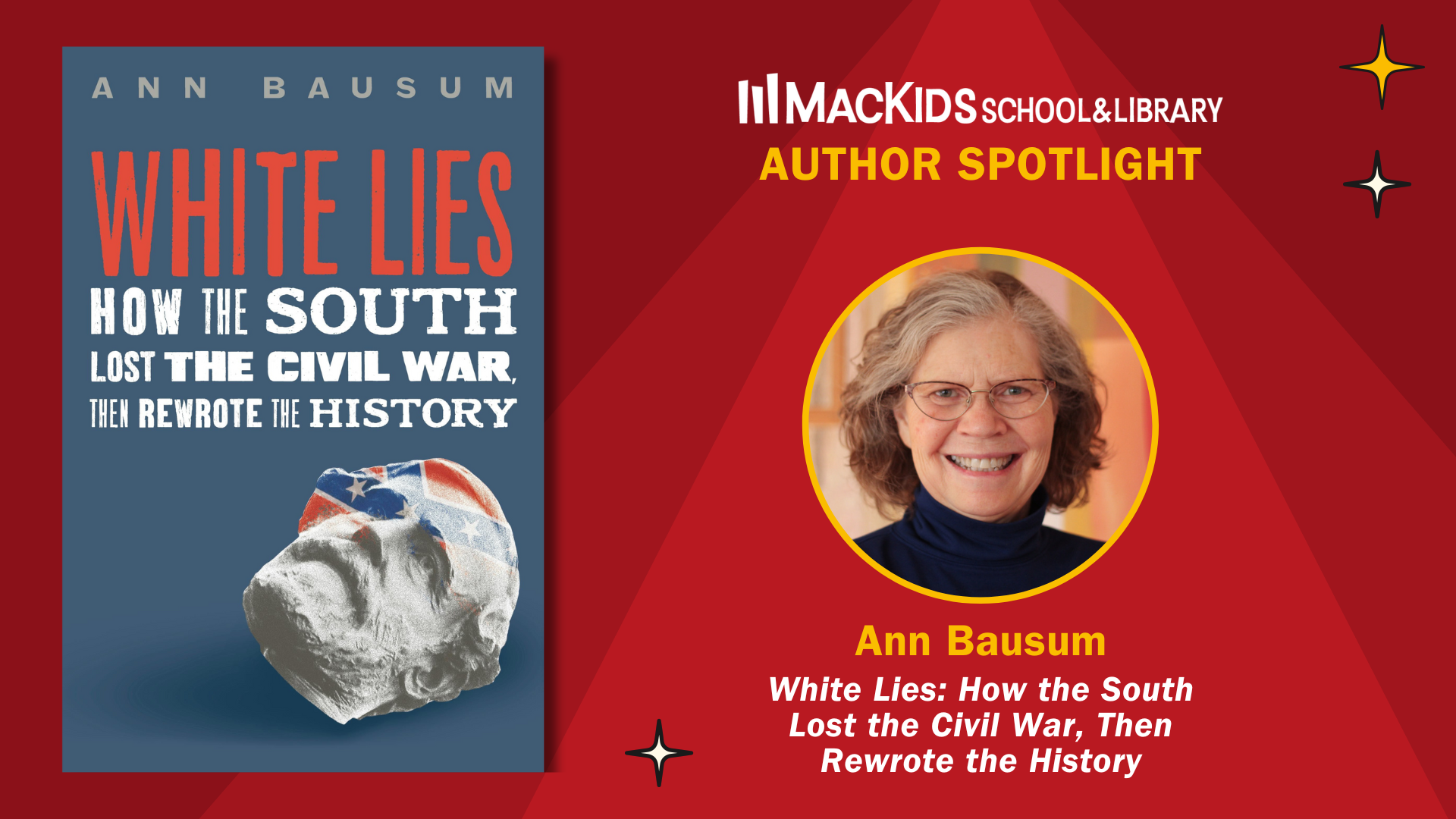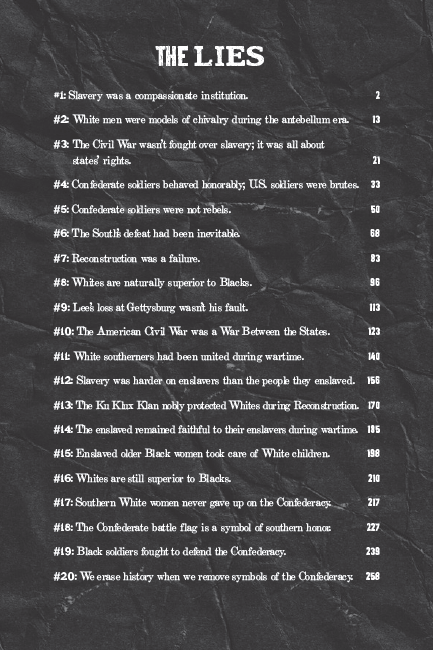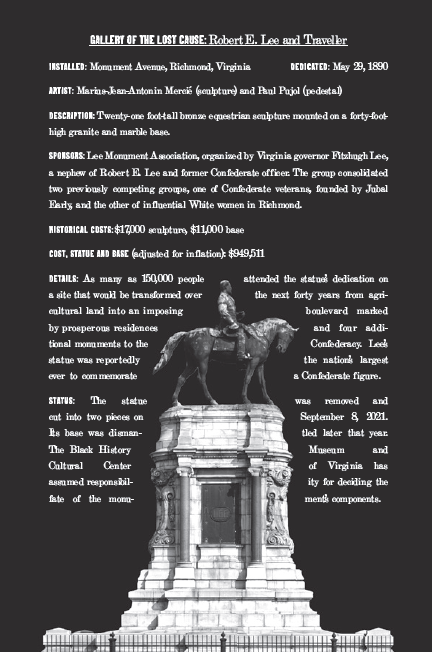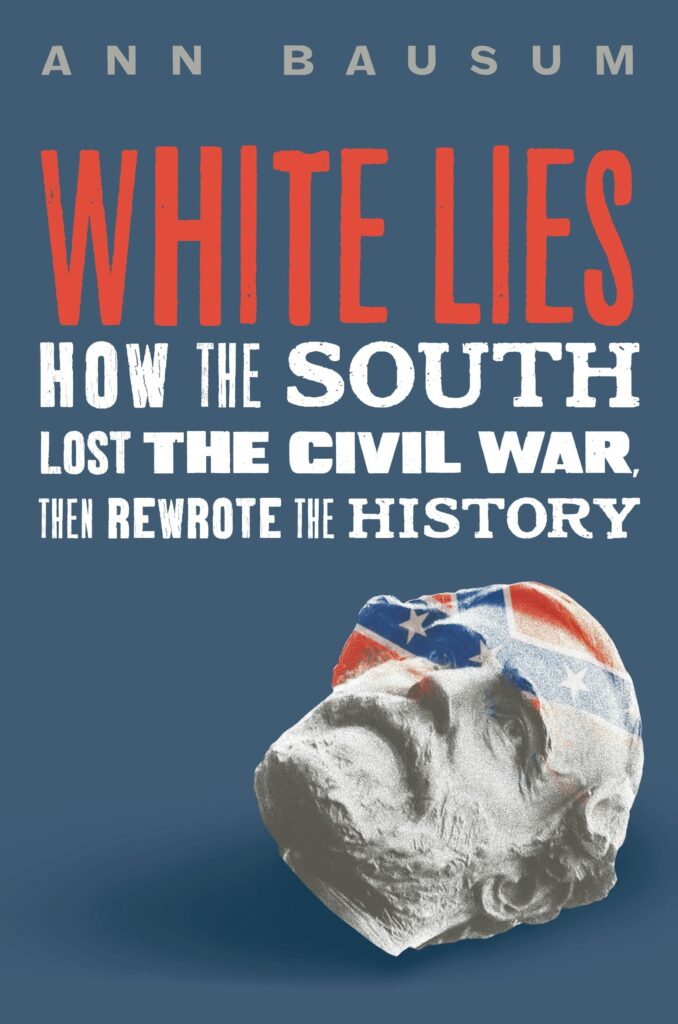
This month’s Author Spotlight is Ann Bausum, author of White Lies: How the South Lost the Civil War, Then Rewrote the History, a powerful young adult novel that examines racism and deconstructs the warped history of the Civil War for teen readers.
You have shared that White Lies was inspired by your childhood growing up in Virginia. What specifically from that time period was the kernel for this book?
Ann Bausum: When I was in fourth grade, I studied Virginia state history for the first time. My teacher was Mrs. Christine Warren, whom I adored. It was the fall of 1966, and our schools had finally been integrated, making Mrs. Warren my first African American educator. Forty-six years later, I dedicated one of my books to her.
I was an adult before I realized how much we had been deceived that year by our state-mandated textbook. Under the guise of learning Virginia history, we’d been indoctrinated in a form of historical propaganda known as the Lost Cause, which aids the perpetuation of White supremacy. White Lies is my effort to call out this betrayal and correct the historical record so today’s readers are treated with the respect that was denied me, my peers, and our teacher all those years ago.
This book discusses how history was rewritten after the Civil War. Can you elaborate on
a few of the most significant ways this rewriting has affected our understanding of this period?
Ann Bausum: Three biggies are the nature of slavery (actually, it was not a benevolent institution), the reason we fought the Civil War (it really was over slavery), and the success of Reconstruction (it wasn’t a failed and corrupt experiment in multiracial rule). By distorting these realities, White southerners were able to minimize the injustice of slavery, wrench power from formerly enslaved people, and, for all intents and purposes, erase Black Americans from our history books. They also adroitly introduced euphemistic terms that replaced the federal government’s official name for the conflict—the War of the Rebellion—with more conciliatory phrases like the Civil War and the War Between the States. Such changes erased all traces of the war’s rebellious beginning and manipulated our understanding of the conflict, its origins, and what followed.

In what ways do you see the themes of White Lies resonating with today’s society? How
can young people use the lessons from this book to address modern-day issues?
Ann Bausum: I like to write about moments of history that can serve as lenses for viewing current events. Knowing the context of what came before can help young people see repeating patterns that carry forward into modern times. Today’s wealth inequality, political polarization, disparate newsfeeds, and fear mongering may seem uniquely insurmountable until we place them within the frame of history. By studying the past, we may be better able to understand—and influence—our own times.
What strategies did you use to make White Lies engaging and accessible for young adult readers?
Ann Bausum: Readers may explore White Lies using multiple pathways. There’s the narrative thread, of course, that traces how and, as importantly, why our accounts of history have been so consistently distorted. To humanize this nonfiction storyline, I introduced many remarkable but little-known historical figures from the throughline of an enduring campaign of deception and misinformation. I paired this content with twenty sidebars, each one introducing a lie that relates to the narrative text. Visual readers will enjoy a third layer of information: the illustrated presentation of twenty examples of Confederate commemoration, including the items’ design, funding, chronology, and placement.

Can you tell us about a librarian or educator who has had a significant impact on your life?
Ann Bausum: My American history teacher in eleventh grade was Raney Fitzgerald. More than anyone else, she taught me how to research and write about history. I was attending school near Washington, D.C., then, and Ms. Fitzgerald arranged for me to conduct research at the Library of Congress in the classic rotunda of the Jefferson Building. Even though I was a teenager, the room’s librarians took my work seriously. With their help, I accessed course catalogs from the nation’s first women’s colleges and, using my newfound skills, was able to evaluate the nature of these early programs of higher education. I call on the same skills to this day, with thanks to Ms. Fitzgerald, other educators, and career librarians everywhere.
What other books would you recommend that touch on this history for young people?
Ann Bausum: To my knowledge, White Lies is the first trade book for kids or adults to focus so exclusively on the insidious creep of Lost Cause propaganda into our national history and culture, but Ibram X. Kendi and Jason Reynolds have explored the impact of this ideology in books like Stamped from the Beginning, by Kendi, and the pair’s coauthored remix of that title for teens, Stamped: Racism, Antiracism, and You.
ABOUT THE AUTHOR

Ann Bausum writes history for readers of all ages. Her books for young people help upper elementary, middle school, and high school students discover the drama and significance of stories from the past that may barely be presented in textbooks. In 2015 her adopted home state named her the year’s Notable Wisconsin Children’s Author. Two years later, the body of her work received national recognition with the Nonfiction Award of the Children’s Book Guild of Washington, D.C.
ABOUT THE BOOK

White Lies: How the South Lost the Civil War, Then Rewrote the History
by Ann Bausum
Ages 12-18
This powerful and unflinching examination of racism in America by award-winning historian Ann Bausum deconstructs the warped history of the Civil War for teen readers, perfect for fans of STAMPED, JUST MERCY, and ACCOUNTABLE.
Warning: This is not your average U.S. history book.
After the Civil War, the Confederates may have laid down their arms, but they were far from accepting defeat. By warping the narrative around what really happened during and after the Civil War, they created an alternate history now known as the Lost Cause. These lies still manifest today through criticism of Critical Race Theory, book banning, unequal funding for education, and more.
This book sets the record straight and explains the true history of the Civil War, and its complex and far-reaching aftermath. Written by historian and award-winning author Ann Bausum, WHITE LIES is an impeccably researched chronicle filled with photos, robust back matter, additional resources, and more that fans of Howard Zinn’s A Young People’s History of the United States will enjoy.


